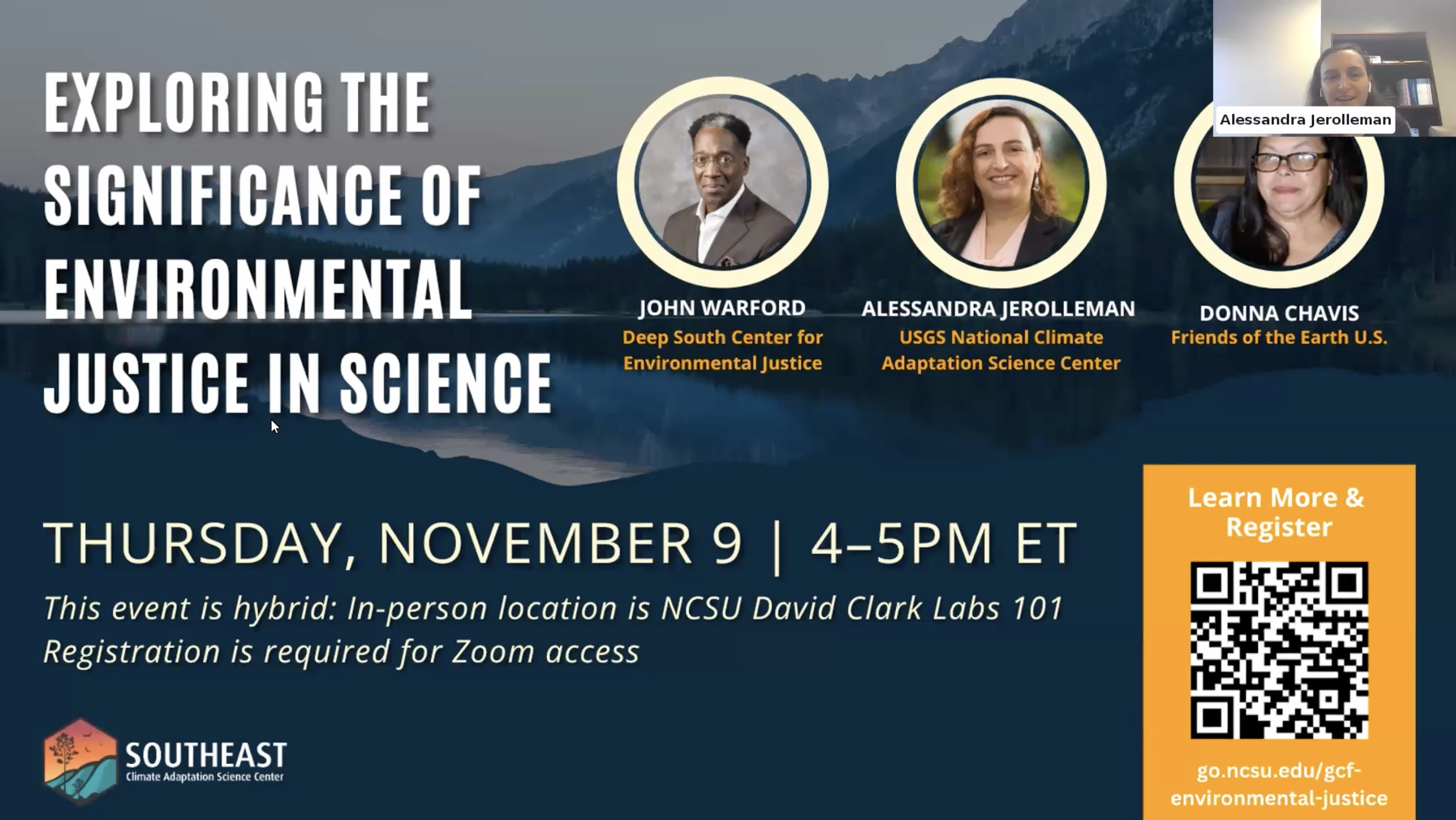Recording: Exploring the Significance of Environmental Justice in Science

The following is a guest blog by Global Change Research Fellow Nathan Schunk, summarizing the November 9 Global Change Seminar, Exploring the Significance of Environmental Justice in Science. The seminar was moderated by Megan Carr with assistance from Mikiah Carver-McGinn, Julianna Jolley, Kurt Naquin, Nathan Schunk, and Laura Taylor.
On November 9, the SE CASC Global Change Research Fellows brought together three panelists, Alessandra Jerolleman, John Warford, and Donna Chavis, to address the significance of environmental justice in scientific research. Alessandra Jerolleman is the Climate Justice Lead at the USGS National Climate Adaptation Science Center (CASC) and an Associate Professor and Director of the Doctoral Program in Emergency Management at Jacksonville State University. John Warford is the Assistant Director of Operations & Training for the Deep South Center for Environmental Justice. Donna Chavis is the Climate & Energy Justice Program Manager with Friends of the Earth U.S.
The conversation began with the speakers’ thoughts on the EPA’s definition of environmental justice. All three panelists echoed each other in their feelings that although the definition is comprehensive, it leaves out context and history as well as the mention of equity. The second question the panelists were asked was what are the roles of scientists and researchers in addressing environmental injustices and promoting equitable policies and practices.
The panelists all highlighted being effective communicators as a primary role. In particular, Jerrolleman says that it is a researcher’s job “to amplify and help document, which depends upon being humble and listening and acknowledging other knowledges.” The third question was, “What sort of academic policies could be used to incentivize environmental justice within scientific research?” Both Warford and Chavis commented on the need for community based participatory research, while Jerrolleman noted low retention rates in academia because the academies “struggle to recognize the time and effort it takes to build relationships.” The fourth question was what ethical considerations are needed when conducting research that impacts environmental justice. A key theme in the panelists’ answers to the fourth question was “who is your work serving?” This was a quote from early in the seminar by Jerrolleman and was brought up frequently in the discussion. Warford also added the need to identify the type of relationship (parasitic, symbiotic, or commensal) scientists want to have with the community to determine their intent. Lastly, the final question was in what ways can we measure and evaluate the effectiveness of environmental justice initiatives and policies. All panelists agreed that to measure the effectiveness, we first need to decide who is defining effectiveness. Furthermore, Chavis stated that impacted communities should be included in the discussion of what is considered “effective.”
The central themes highlighted throughout the panelists’ discussion centered on active community engagement, acknowledging and engaging with other knowledges, and knowing who your work is serving. These can be used as gateways into further understanding of environmental justice practices within scientific research.
You can get in contact with the panelists with the following information:
- Alessandra Jerolleman: ajerolleman@usgs.gov
- John Warford: johnw@dscej.org
- Donna Chavis: dchavis@foe.org
- Categories:
